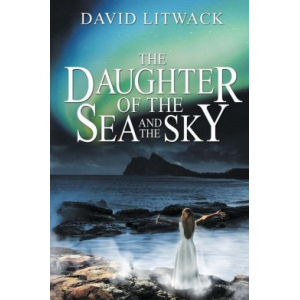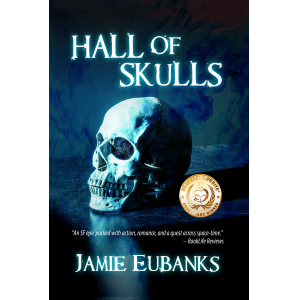- Author
- Book
- Story behind the book
- Media Links
- Reviews

Danton Steele
About
About theAuthor
Overthe last thirty-seven years, Danton Steele has been asked often why he enjoysliving in the developing world. Hisresponse is always same. “Hell I grew upin the 50s and 60s in a developing country – the State of Louisiana.” Then Louisiana was known as much for itscorrupt politicians as it was for its food and its music.
Steele,a pen name, began his international career in the Peace Corps in Botswana in1973. He was thirty-five and on afive-year assignment in the Philippines for a major American bank when he wroteThe Marcos Money in the early-80s. He experienced most of the scenes and situations portrayed in the book, includingdevaluation, debt rescheduling, and mayhem following the murder of NinoyAquino. He knew most of the characters inthe book though many of the names have been changed and many of the rolesinterchanged. His central plot, thoughtempting and laudable, is pure fiction.
Followingthe Philippines, Danton lived in Sri Lanka, South Africa, Hawaii, The Gambia,Jamaica, and Jordan implementing international development projects of variouskinds. He traveled more than forty times to Kashmir, were he always stayed withGulam’s family on the New Golden Fleece. In Jordan he converted this book into ascreenplay entitled “The Marcos Money”, and he penned a screenplay entitled“The Red-Dead”, another fast-paced thriller of love, honor killing, andgeologic upheaval of epic proportions. He currently lives in Pakistan where he is working on a third screenplayentitled “Osama’s Head”.
Order more copies at www.createspace.com/3441540
Donate to education in developing areas ofthe world at
Write the author at dantonsteele@gmail.com

Through the Eyes of Maria: Choices
Description
<p>Maria hits the streets of New York in search of the love denied by her alcoholic father and indifferent mother. When Sergio, a dark, worldly stranger, lures her with diamonds, brand-name clothing, and undivided attention, Maria sees a way out of her dysfunctional home. Seduced by Sergio’s charm and the promise of wealth and recognition, Maria ignores her panicked intuition and wanders into his lair.<br /><br />But in a world where ambition and deception go hand in hand, where dreams are shattered and innocence crushed, Maria discovers she’s trapped in a hell much worse than the one she left. And now, there is no escape. The price for betrayal is blood.<br /><br />Destiny intervenes when Maria meets Christian, a handsome law student haunted by a dark family secret. With her life at risk and time running out, will Maria find the strength to save herself and convince Christian to go against all reason and risk everything to help her?</p>
Story Behind The Book
In 1978, I was a banker on assignment in Tokyo for six weeks and a Japanese schoolmate of mine, Shinshiro Wada, insisted that my wife and I move out of our hotel and in with he, his wife, and their your son. One night he was out and our wives were talking about other matters, so I browsed through Shin's library. I came across a book called The Crash of '79 by a former banker, Paul Erdman. It was a fast-paced thriller of the Forsythe and Follett genre about the end of the Shah of Iran, Since it was written two years before he lost power, it de facto painted a fictional end to the regime, but because of its timing, it sold millions of copies. A couple of years later, I found myself living in the Philippines, and feeling like I had a book "in me". I started the book thinking I would write the Gone With the Wind of Asia, focusing on the sugar plantation culture of the Philippines and its similarity to the antebellum American South. I wrote the first chapter, and afterwards I didn't like what I read. Falling back on the old adage "write what you know" and realizing that like Paul Erdman, I was standing with my feed in a field of diamonds in the Philippines in the sense that the Marcos regime was going to end at some point in the not too distant future. Timing is everything, I recalled, and so The Marcos Money was born! But alas, I was transferred to Sri Lanka before it could be finished, and the fact that I had a new office to run in Colombo meant that I did not spend much time on completing it. A year and a half later, Cory Aquino and People Power deposed the Marcoses, and I missed that all important timing. I finished the fiction-based-on-fact book about six months after the Marcoses fled to Hawaii with their millions, but I never published the book. The fiction aspect of the book is largely in three of the lead players, Paul Steele, General Roman Menchaka, and the alluring Techy, and in the actual theft of the Marcoses' ill-gotten gains, tempting though it was. Almost everything else in the book is real the characters, though the names have been changed with few exceptions. Nearly all of the action actually occurred and all of the settings are real. The electronic theft possibility is based on products and tools that were available and being peddled by bankers at the time, and the money laundering techniques described were in active use in Southeast Asia. Time heals all things and e-Publishing finally came along, so now the book is available. People tell me it is indeed the fast-paced story I intended it to be, and that the characters are compelling. I hope you agree. As the Epilogue indicates, the corrosive effects of corruption are still depriving huge segments of the human race of education and economic opportunity, and safe havens such as Switzerland continue to offer depositories for ill-gotten wealth. I hope you like the characters and enjoy the tale.
Media Links
Reviews
<p class="MsoNormal" style="margin-bottom:.0001pt;line-height:normal;"><span style="font-size:8pt;font-family:Georgia, serif;">“A riveting read. Its plot is ingenious and its characters believable and thoroughly engaging. Crisscrossing paths of action held my attention from the first to the last sentence of the book.”<span> </span><span> </span>- John Dorr, Cebu, Philippines</span></p> <p class="MsoNormal" style="margin-bottom:.0001pt;line-height:normal;"><span style="font-size:8pt;font-family:Georgia, serif;">"I LOVE this book!!!<span> </span>Unusual subject matter, memorable characters, exotic places, and fast pace.<span> </span>I enjoy thrillers, and this one goes to the top of my list."<span> </span><span> </span>- Constanza Low, Pine Plains, NY</span></p> <p class="MsoNormal" style="margin-bottom:.0001pt;line-height:normal;"><span style="font-size:8pt;font-family:Georgia, serif;">"Compelling historical fiction that expertly captures the Philippines of 1983 with a mix of Robin Hood and power politics.<span> </span>A racy page turner."<span> </span><span> </span>- Mark Johnson, San Diego, CA</span></p> <p class="MsoNormal" style="margin-bottom:.0001pt;line-height:normal;"><span style="font-size:8pt;font-family:Georgia, serif;">"Truth or fiction, this fast-paced tale pulls you in and won't let go. Riveting!"<span> </span>- Jane Gindin, Austin, TX</span></p> <p class="MsoNormal" style="margin-bottom:.0001pt;line-height:normal;"><span style="font-size:8pt;font-family:Georgia, serif;">"Every page ... a new country, another adventure, the next intrigue.<span> </span>You can't put it down." </span></p><p></p> <span style="font-size:8pt;line-height:115%;font-family:Georgia, serif;"><span> </span>-Sara Sullivan, Boston, MA</span>






